
Overview
A pH meter is a vital tool in water quality testing, used to measure the acidity or alkalinity of water on a scale from 0 to 14. It works through a pH electrode with a sensitive glass membrane that generates a voltage proportional to the hydrogen ion concentration in the water, along with a reference electrode for stability. Before use, calibration with known pH standard solutions ensures accuracy. The pH of water is essential for assessing its suitability for drinking, environmental health, and industrial processes. Regular monitoring helps detect changes in aquatic ecosystems and prevent adverse effects on human health. Proper maintenance and care of pH meters ensure accurate readings and reliable water quality analysis. In water quality testing, pH meters play a critical role in identifying potential pollution sources and guiding remediation efforts. They are also indispensable in various scientific research, agriculture, and aquaculture applications, where pH levels influence crop yields and the well-being of aquatic organisms. Additionally, pH meters are often integrated into water treatment systems to monitor and adjust pH levels for efficient chemical reactions and corrosion prevention.
GAO Tek’s pH Meter is a versatile instrument that goes by various names depending on its specific features and functions. It is commonly referred to as a pH Tester, pH Probe, pH Sensor, pH Analyzer, pH Monitor, pH Measurement Device, pH Indicator, pH Metering Instrument, pH Testing Equipment, pH Electrode, pH Gauge, pH Reader, pH Measuring Device, pH Monitoring System, pH Titration Tool, pH Checker, pH Scale Tester, pH Detection Instrument, and pH Determination Device. This extensive range of designations underscores the flexibility and adaptability of GAO Tek’s pH Meter, catering to a wide array of applications where precise pH level measurement is essential.
GAO Tek’s pH Meters have the following applications in water quality testing:
- Drinking water analysis: GAO Tek’s pH meters are used to monitor and maintain the pH levels in drinking water supplies. The pH of drinking water is crucial for taste, corrosion control, and the effectiveness of disinfection processes like chlorination.
- Wastewater treatment: pH plays a vital role in wastewater treatment processes. Monitoring the pH levels helps in optimizing the efficiency of various treatment steps, such as coagulation, precipitation, and biological processes like activated sludge treatment.
- Aquaculture: pH is an important parameter in fish and shrimp farming. Maintaining the correct pH level in aquaculture systems is essential for the health and growth of aquatic organisms.
- Swimming pools and spas: Regular monitoring of pH in swimming pools and spas is necessary to ensure the water remains comfortable for swimmers and to prevent issues like algae growth and equipment corrosion.
- Environmental monitoring: GAO Tek’s pH meters are used in environmental monitoring of natural water bodies, such as lakes, rivers, and streams. Changes in pH levels can indicate pollution or changes in water chemistry caused by various factors, including industrial discharges or agricultural runoff.
- Agriculture: pH meters are employed in agriculture to determine soil pH. Understanding the soil pH helps in selecting suitable crops and applying the right amount of fertilizers for optimal plant growth.
- Industrial processes: Various industries, such as chemical, pharmaceutical, and food processing, use pH meters to control and monitor their processes. Maintaining specific pH levels is crucial in chemical reactions and product quality.
- Hydroponics and aquaponics: pH levels are critical in hydroponic and aquaponic systems, where plants grow without soil. Proper pH control ensures nutrient availability and healthy plant growth.
- Research and education: GAO Tek’s pH meters are used in research laboratories and educational institutions to teach principles of acid-base chemistry and conduct experiments related to pH and its effects.
- Boiler and cooling water systems: Monitoring pH levels in boiler and cooling water systems is essential to prevent corrosion and scale formation, which can lead to system inefficiencies and damage.
More information on pH Meter and their applications in other industries can be found on this page
This category page lists related products
Complying with Industry Standards
GAO Tek’s pH Meter complies or help our customers comply with industry standards such as
- ISO 10523: Water Quality – Determination of pH
- ASTM D1293
- EPA Method 150.1: pH, Electrochemical
- Standard Methods for the Examination of Water and Wastewater (SM 4500-H+ B)
- ISO 10522: Water Quality – Determination of pH – Electrometric Method
- USP <791>: pH
- EP 2.2.3: pH
- ISO 10304-1
- BS EN 27888
Complying with Government Regulations
GAO Tek’s pH comply or help our customers comply with the U.S. government regulations such as
- Clean Water Act (CWA): The CWA establishes the basic structure for regulating discharges of pollutants into U.S. waters and sets water quality standards to protect surface waters from pollution. pH measurements are critical in determining water quality and can indicate the presence of acidic or alkaline pollutants.
- Safe Drinking Water Act (SDWA): The SDWA sets national standards for drinking water quality. The EPA regulates the permissible levels of certain contaminants, including pH, in public drinking water supplies. Proper pH levels are crucial for ensuring the water is safe, palatable, and does not cause corrosion in distribution systems.
- National Pollutant Discharge Elimination System (NPDES) Program: Under the CWA, the NPDES program regulates point sources that discharge pollutants into U.S. waters. Entities with NPDES permits are required to monitor and report various water quality parameters, including pH, to ensure compliance with permit conditions.
- Clean Water State Revolving Fund (CWSRF) Program: The CWSRF program provides low-interest loans and grants to help finance wastewater treatment projects. pH measurement is a critical aspect of assessing wastewater quality and treatment efficiency.
- Total Maximum Daily Load (TMDL) Program: The TMDL program establishes the maximum amount of a pollutant that a water body can receive while still meeting water quality standards. pH is an essential parameter in TMDL calculations as it can influence the toxicity and bioavailability of pollutants.
- Federal Insecticide, Fungicide, and Rodenticide Act (FIFRA): FIFRA regulates the registration, distribution, sale, and use of pesticides and other chemical substances. pH may be a factor in determining the effectiveness and safety of certain pesticide formulations.
- National Primary Drinking Water Regulations: These regulations, established under the SDWA, set maximum contaminant levels (MCLs) for various water quality parameters, including pH, to protect public health in drinking water supplies.
GAO Tek’s pH comply or help our clients comply with the Canadian regulations such as
- Canadian Environmental Protection Act, 1999 (CEPA): CEPA is Canada’s primary federal legislation for regulating and managing the environmental impact of substances. It covers various aspects of water quality, including the monitoring of parameters such as pH.
- Fisheries Act: The Fisheries Act is designed to protect fish and fish habitats in Canadian waters. It includes provisions related to water quality monitoring and standards that may involve pH measurements.
- Canadian Drinking Water Quality Guidelines (CDWQG): The CDWQG, established by Health Canada, provides guidance on the maximum acceptable concentrations of various substances in drinking water, including pH.
- Canadian Environmental Quality Guidelines (CEQG): The CEQG, developed by Environment and Climate Change Canada, sets recommended guidelines for various water quality parameters, which may include pH.
- Canadian Water Quality Guidelines for the Protection of Aquatic Life (CWQG): Environment and Climate Change Canada also provides guidelines for the protection of aquatic life in Canadian waters, which may include pH criteria.
- Provincial and Territorial Regulations: In addition to federal regulations, individual provinces and territories in Canada may have their own specific regulations and guidelines related to water quality testing, which could include provisions for pH meter usage and calibration.
Case Studies of pH Meters in Water Quality Testing
pH meter are sometimes called as pH tester, pH Probe, pH Sensor, pH Analyzer, pH Monitor, pH Measurement Device, pH Indicator, pH Metering Instrument, pH Testing Equipment, pH Electrode, pH Gauge, pH Reader, pH Measuring Device, pH Monitoring System, pH Titration Tool, pH Checker, pH Scale Tester, pH Detection Instrument, and pH Determination Device. This extensive range of designations underscores the flexibility and adaptability of GAO Tek’s pH Meter, catering to a wide array of applications where precise pH level measurement is essential.
Here are some practical examples of using pH meter in water quality testing:
A state environmental agency in Vermont uses pH meters to monitor the acidity levels of various lakes in the region. The data collected helps assess the impact of acid rain and other pollution sources on the water quality, guiding policymakers in making informed decisions to protect these water bodies.
A manufacturing plant in upstate New York relies on pH meters to ensure compliance with NPDES regulations. The plant continuously monitors the pH of its wastewater discharge to meet permit requirements and prevent harmful impacts on nearby waterways.
A water utility company in Massachusetts uses pH meters to monitor and control the pH levels in its drinking water treatment process. Consistent pH measurements are essential to ensure the water is safe for consumption and prevent corrosion in the distribution system.
An environmental organization in Maine conducts stream restoration projects to improve water quality and fish habitats. pH meters are used to assess the pH levels before and after restoration efforts to monitor the effectiveness of the projects.
A research team from a university in New Hampshire uses pH meters to analyze water samples from streams affected by agricultural runoff. By studying the pH levels and other water quality parameters, they aim to understand the impacts of farming practices on water ecosystems and recommend sustainable agricultural practices.
A city in Connecticut employs pH meters to monitor stormwater runoff from urban areas. Understanding the pH levels in stormwater can help identify potential pollutants and design effective stormwater management strategies.
A team of ecologists in Rhode Island uses pH meters to investigate the health of aquatic ecosystems in local ponds and estuaries. pH measurements are combined with other water quality data to assess overall ecosystem health and identify potential stressors.
A state environmental agency in Ohio utilizes pH meters to monitor the pH levels of rivers in the region. The data collected helps in assessing the overall water quality and identifying potential pollution sources, such as agricultural runoff or industrial discharges.
A research team from an Illinois university conducts a study to investigate groundwater contamination in certain areas. pH meters are used to assess the pH levels of groundwater samples to understand how the contamination affects the water quality.
A wastewater treatment plant in Indiana employs pH meters to monitor and control the pH levels throughout the treatment process. Maintaining the correct pH range is crucial for efficient treatment and compliance with regulatory standards.
An environmental organization in Michigan works on restoring the water quality of a polluted lake. pH meters are used to assess the lake’s pH levels before and after restoration efforts to evaluate the success of the project.
A city in Wisconsin uses pH meters to analyze stormwater runoff from urban areas. Understanding the pH levels in stormwater helps identify potential pollutants and plan appropriate stormwater management strategies.
A fisheries management agency in Minnesota employs pH meters to study the pH levels in lakes and rivers that support fish populations. pH data is essential for understanding fish habitat preferences and maintaining suitable aquatic environments.
An industrial facility in Iowa uses pH meters to monitor the pH of its effluent discharge to comply with NPDES regulations. Consistent pH measurements are essential to ensure the discharge does not harm the receiving water bodies
A coastal conservation organization in Texas uses pH meters to monitor the pH levels of estuaries along the Gulf Coast. The data collected helps assess the impact of agricultural runoff and urban development on the estuarine ecosystems.
A water utility company in Florida relies on pH meters to ensure compliance with the Safe Drinking Water Act. Continuous monitoring of pH in the drinking water treatment process is crucial for maintaining safe and potable water.
An environmental restoration project in Louisiana aims to rehabilitate degraded wetlands. pH meters are used to measure the pH levels in the wetland soil and water to assess the success of restoration efforts.
A state environmental agency in Georgia conducts routine surface water quality monitoring using pH meters. The collected pH data helps in understanding the overall health of rivers and lakes and identifying potential pollution sources.
A research team in Mississippi studies the effects of agricultural best management practices on water quality. pH meters are used to assess pH levels in agricultural runoff and evaluate the effectiveness of various practices in reducing nutrient pollution.
A city in North Carolina uses pH meters to monitor stormwater runoff from urban areas. Understanding the pH levels in stormwater helps identify pollutants and design effective stormwater management strategies.
An aquaculture farm in Alabama uses pH meters to monitor the pH levels in fish ponds. Proper pH control is essential for optimizing fish health and growth.
An environmental agency in California uses pH meters to monitor the pH levels of rivers and streams in the region. The data collected helps assess water quality, identify potential pollution sources, and make informed decisions about water resource management.
A mining company in Nevada employs pH meters to monitor the pH of its wastewater discharges to comply with state and federal regulations. Consistent pH measurements are crucial to ensure that the discharges do not harm nearby water bodies.
A research team from an Arizona university conducts a study to investigate groundwater contamination in specific areas. pH meters are used to assess the pH levels of groundwater samples and understand the extent of the contamination.
A water treatment plant in Washington uses pH meters to monitor and control the pH levels during the drinking water treatment process. Maintaining the correct pH range is critical for producing safe and clean drinking water.
A city in Oregon utilizes pH meters to analyze stormwater runoff from urban areas. Understanding the pH levels in stormwater helps identify potential pollutants and plan effective stormwater management strategies.
An environmental organization in Idaho uses pH meters to study the pH levels in lakes and rivers where habitat restoration projects are underway. pH data helps in evaluating the success of restoration efforts and their impact on aquatic ecosystems.
A hydroponics farm in Colorado relies on pH meters to monitor and adjust the pH levels of nutrient solutions for optimal plant growth. Accurate pH control is essential for ensuring healthy crops.
A government agency in Ontario uses pH meters to monitor the pH levels of the Great Lakes. The data collected helps assess water quality, track changes over time, and support conservation efforts in this critical freshwater ecosystem.
An industrial facility in Alberta utilizes pH meters to monitor the pH of its effluent discharge to comply with provincial environmental regulations. Consistent pH measurements are essential to ensure the discharge does not harm receiving waters.
A research team from a university in British Columbia conducts a study to assess the quality of groundwater in specific areas. pH meters are used to measure pH levels, helping to understand the hydrogeological processes and potential contamination sources.
A wastewater treatment plant in Quebec relies on pH meters to monitor and control pH levels throughout the treatment process. Proper pH control is crucial for efficient treatment and minimizing environmental impacts.
An environmental organization in Nova Scotia works on restoring the water quality of an urban river. pH meters are used to assess the river’s pH levels before and after restoration efforts to evaluate the project’s success.
An aquaculture farm in New Brunswick uses pH meters to monitor the pH levels in fish ponds. Accurate pH control is essential for optimizing fish health and growth.
A provincial agency in Manitoba uses pH meters to monitor the pH levels of various lakes across the province. The data collected helps in assessing water quality and identifying potential environmental issues.
GAO RFID Inc.RFID Hardware, a sister company of GAO Tek Inc., is ranked as a top 10 RFID supplier in the world. Its RFID, BLE, and IoT products have also been widely used in water quality testing.
Use of pH meter with leading software and cloud services in water quality testing
GAO Tek has used or has facilitated its customers to use GAO’s pH meter with some of the leading software and cloud services in their applications. Examples of such leading software and cloud services include.
- Data Acquisition and Logging Software
- Calibration Software
- Data Analysis and Visualization Software
- Report Generation Software
- Environmental Monitoring Software
- Laboratory Information Management Systems (LIMS)
- Remote Monitoring and Control Software
- Mobile Apps
- Cloud-Based Solutions
- Compliance and Regulatory Software
- Amazon Web Services (AWS)
- Microsoft Azure
- Google Cloud Platform (GCP)
- IBM Cloud
- Oracle Cloud
- Databricks
- Tableau Online
- Power BI
- Datadog
GAO Tek’s pH meter and their applications in other industries are listed on this page.
Other related products can be found at this category page
GAO Tek has many Customers in Water Quality Testing
The products from both GAO Tek Inc. and GAO RFID Inc. have been widely used in water quality testing by many customers, including some leading companies. Here is more information on applications of GAO RFID Inc.’s pH meter in water quality testing.
Here are some of the leading companies in water quality testing Industry:
- Eurofins TestAmerica: A leading provider of environmental testing and analytical services in North America, offering a wide range of testing solutions for air, water, soil, and hazardous waste samples.
- ALS Environmental: A global company specializing in environmental testing and analysis, with a comprehensive range of services for assessing environmental contamination and quality.
- Element Materials Technology: A multinational company that provides a variety of testing, inspection, and certification services, including environmental testing for regulatory compliance.
- Environmental Standards, Inc.: An environmental consulting and testing firm that offers analytical services, regulatory support, and sustainability solutions for various industries.
- Alpha Analytical, Inc.: A full-service environmental testing laboratory that provides analytical services for air, water, soil, and waste samples, catering to industrial and governmental clients.
- PACE Analytical Services, Inc.: A provider of laboratory testing and analytical services, serving multiple industries, including environmental, pharmaceutical, and food safety.
- Waters Corporation: A company specializing in analytical instrumentation and solutions, including products for environmental testing and quality control.
- Analytical Services, Inc. (ASI): A contract laboratory offering analytical testing services, including environmental testing for contaminants in soil, water, air, and waste.
- Exova (now part of Element Materials Technology): A former independent testing company acquired by Element Materials Technology, providing materials and environmental testing services globally.
- TRC Companies, Inc.: An engineering and environmental consulting firm that also offers analytical services for environmental projects.
- Maxxam Analytics: A company providing laboratory testing and analytical services for environmental, food, pharmaceutical, and other industries.
- SGS Canada: A part of SGS Group, offering inspection, testing, and certification services, including environmental testing for compliance and quality assurance.
- Bureau Veritas: A global provider of testing, inspection, and certification services, offering environmental testing for regulatory compliance and risk assessment.
- AGAT Laboratories: A Canadian company providing specialized laboratory testing services, including environmental testing for various industries.
- ALS Global: A company offering a wide range of testing and analytical services, including environmental testing for air, water, soil, and food samples.
- SRC Environmental Analytical Laboratories: A laboratory facility operated by SRC, providing environmental testing and analysis services.
- AXYS Analytical Services: A company specializing in environmental and chemical analysis, offering innovative testing solutions for challenging samples.
- ALS Canada Ltd.: The Canadian branch of ALS Global, providing environmental testing and analysis services across the country.
- Acuren Group Inc.: A company offering engineering, inspection, and analytical services for various industries, including environmental analysis.
- Mérieux NutriSciences: A global provider of analytical and food safety testing services, including environmental testing for food industry clients.
- Microbac Laboratories: A laboratory testing company offering environmental, food, and pharmaceutical testing services.
- Intertek: A multinational company providing testing, inspection, and certification services, including environmental testing for regulatory compliance.

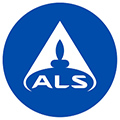


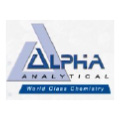

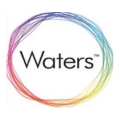


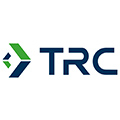



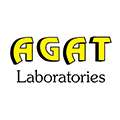




The main page of the pH meters has more information on GAO’s pH meters and their applications in various industries.
